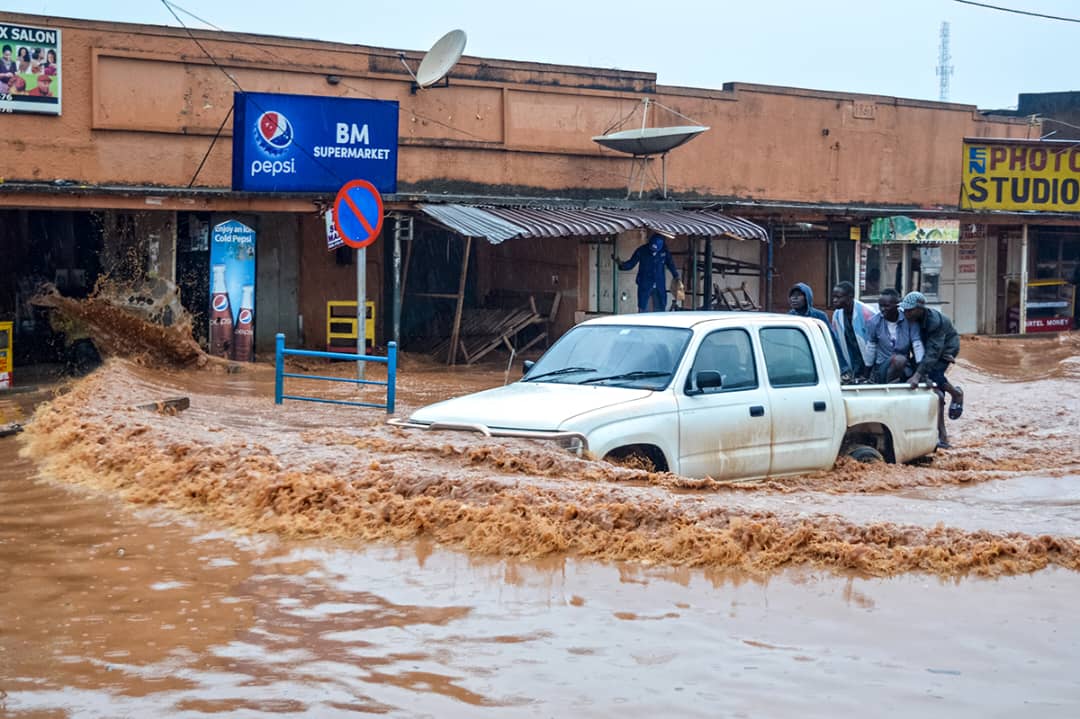News
Kampala’s Flood Crisis Meets Its Match: KCCA’s Game-Changing Public-Private Drainage Plan

For years, Kampala’s rainy seasons have been a recurring nightmare—streets transforming into rivers, businesses paralyzed by waterlogged markets, and families displaced by relentless floods. But after decades of failed fixes, a groundbreaking shift is finally here. On April 3rd, 2025, the KCCA Council approved a bold, sustainable strategy: partnering with capable local investors to modernize and cover the city’s drainage channels under stringent KCCA oversight—turning Kampala’s flooding curse into a solvable challenge.

Kampala City Choking on Its Own Waste
The root of Kampala’s flooding crisis isn’t just nature—it’s neglect. The city’s open drainage systems, designed for a different era, have become clogged arteries, choked by plastic waste, illegal dumping, and unchecked urban sprawl. When the skies open, these blocked channels spill over, turning roads into swamps and neighborhoods into disaster zones. But with this new resolution, Kampala isn’t just patching the problem—it’s reengineering its future.
The Council’s resolution recognizes that Kampala cannot continue to operate like this—not if it wishes to grow into a truly modern city. It is a wake-up call grounded in the realities of urbanization, population growth, and climate change.

Private Sector Power Under Public Supervision
The new approach is refreshingly pragmatic. Instead of depending solely on underfunded public coffers and dwindling foreign aid, KCCA will now work hand-in-hand with proven, competent local investors who have the will, capacity, and track record to get the job done. These developers will operate under strict KCCA oversight—ensuring that public interest, safety, and sustainability are never compromised.
The benefits of this approach are undeniable:
Properly designed and covered drainage channels will eliminate solid waste dumping and drastically reduce the risk of blockage.
Underground systems will improve city aesthetics, reduce health risks, and enhance property value.
Public-private partnerships will relieve pressure on government budgets while accelerating progress.
Investors like Ham Enterprises, who have already shown results in Nakivubo, offer a practical model of how collaboration—not conflict—leads to success.
Nakivubo: A Glimpse Into the Future
While the rest of Kampala was submerged during the March 2025 rains—areas like Kawempe, Clock Tower, Kamwokya, Zana, and Natete turned into rivers—one place stood out: Nakivubo. Thanks to a drainage upgrade executed by Ham Enterprises under the interim leadership of KCCA’s Acting ED Frank Nyakana Rusa, the area remained dry and functional.
That success story alone justifies the Council’s resolution. It is proof that the right partnerships—grounded in legality, professionalism, and competence—can yield tangible results for the city.
Lukwago’s Legacy of Sabotage
Yet not everyone welcomed this progress. As the Council moved toward solutions, Lord Mayor Erias Lukwago resorted to his familiar script of obstruction and political sabotage. He falsely accused Dr. Hamis Kiggundu and Rusa of causing the very floods they had helped prevent—an accusation that was not only dismissed in court but slammed by the Council as “malicious, unfounded, and politically motivated.”
Since 2011, Lukwago’s tenure has been marked less by leadership and more by relentless opposition to nearly every major development in the city. He has made a career of antagonizing Executive Directors, fighting modernization, and frustrating the very developers who seek to transform Kampala. His most recent outburst against Ham Enterprises and Rusa reveals a dangerous pattern—using his office not to build, but to block.
In contrast, the Council’s united stance sent a strong message: that Kampala’s future will not be built on hate, propaganda, and personal vendettas. It will be built on partnerships, professionalism, and people-centered progress.
A Vision Worth Backing
The resolution is not just a policy change—it’s a vision for a better Kampala. A city where:
Drainage is underground, clean, and efficient.
Floods are rare and manageable.
Investors are supported, not sabotaged.
Leadership is defined by results, not rhetoric.
This is the Kampala that the Council—and forward-thinking Ugandans—are working toward.
Time for Government Backing
It’s now up to the central government and all national stakeholders to fully support this resolution. Delays, bureaucracy, and politicking have no place in this moment. Kampala needs action. Ugandans deserve results. And our local investors—who carry the vision and means to deliver—deserve respect and cooperation.
Conclusion: From Floods to the Future
KCCA’s April 3rd resolution is not just a step in the right direction—it’s a leap toward lasting transformation. If embraced and implemented with transparency, urgency, and unity, it could finally put an end to Kampala’s flood nightmare and usher in a new era of clean, modern urban living.
The time for blame is over. The time for building has begun.
